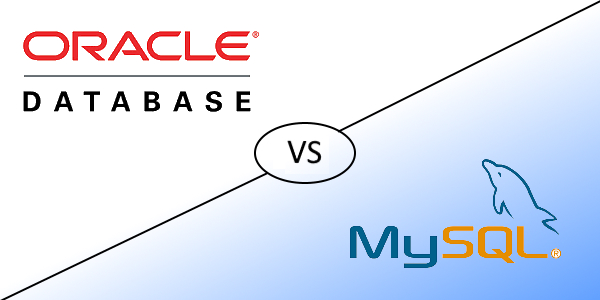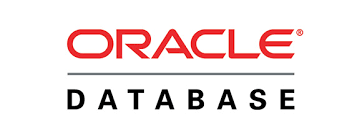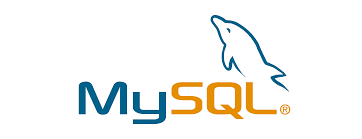


In the world of relational database management systems (RDBMS), Oracle and MySQL are two prominent players. Both offer robust solutions for managing and storing vast amounts of data efficiently. However, there are significant differences between Oracle and MySQL that make them suitable for different use cases. In this article, we will delve into these differences, examining their features, performance, scalability, licensing, and community support.
 Oracle: Oracle Database is a comprehensive RDBMS developed and marketed
by Oracle Corporation. It is a commercial product with a rich set of
features, designed to handle complex enterprise-level applications. Oracle
offers high performance, scalability, and advanced security features, making
it a preferred choice for large organizations.
Oracle: Oracle Database is a comprehensive RDBMS developed and marketed
by Oracle Corporation. It is a commercial product with a rich set of
features, designed to handle complex enterprise-level applications. Oracle
offers high performance, scalability, and advanced security features, making
it a preferred choice for large organizations.
 MySQL: MySQL is an open-source RDBMS developed
as an open source and now owned by Oracle Corporation. It
is known for its simplicity, ease of use, and wide adoption in web
applications. MySQL is available in both open-source and commercial
editions, catering to a broad range of users from individual developers to
large enterprises.
MySQL: MySQL is an open-source RDBMS developed
as an open source and now owned by Oracle Corporation. It
is known for its simplicity, ease of use, and wide adoption in web
applications. MySQL is available in both open-source and commercial
editions, catering to a broad range of users from individual developers to
large enterprises.
If you ever need to migrate or synchronize Oracle to MySQL or MySQL to Oracle database, then look no further, download the trusted and reliable
Oracle: Oracle Database is a commercial product that requires users to purchase licenses based on the number of processors or users accessing the system. It offers different editions, including Standard Edition, Enterprise Edition, and Express Edition (free but with limitations). Oracle's licensing costs can be substantial, especially for large-scale deployments.
MySQL: MySQL is primarily released under the GNU General Public License (GPL), making it freely available for most users. However, Oracle also offers a commercial edition called MySQL Enterprise Edition, which provides additional features, support, and advanced monitoring tools for enterprise users.
Oracle: Oracle Database is renowned for its rich feature set. It supports advanced functionalities such as advanced analytics, partitioning, data replication, high availability, and robust security mechanisms. Oracle also provides built-in support for data warehousing, complex queries, and extensive procedural language support with PL/SQL.
MySQL: While MySQL may not offer the same breadth of features as Oracle, it still provides essential functionalities required for most applications. It supports standard SQL, transactions, indexes, views, stored procedures, and triggers. MySQL is well-suited for web-based applications, content management systems, and small to medium-sized databases.
Oracle: Oracle Database is known for its exceptional performance and scalability. It employs advanced optimization techniques, query tuning, indexing, and parallel processing capabilities to handle large workloads efficiently. Oracle's architecture is designed to scale horizontally and vertically, allowing it to handle massive datasets and concurrent user connections effectively.
MySQL: MySQL is lightweight and performs well in typical web application scenarios. It is particularly adept at handling read-intensive workloads. However, compared to Oracle, MySQL may face scalability challenges when dealing with extremely high data volumes or complex transactional processing. Sharing techniques and replication can be used to enhance MySQL's scalability for specific use cases.
Oracle: Oracle Corporation provides comprehensive commercial support for Oracle Database, ensuring prompt bug fixes, security patches, and updates. However, this support comes at a significant cost. Oracle also has an active community of developers and users who contribute to forums and online resources, providing assistance and sharing knowledge.
MySQL: MySQL has a vibrant open-source community that actively contributes to its development and support. Users can access a vast range of community forums, mailing lists, and documentation to seek help, share experiences, and find solutions to issues. Additionally, Oracle offers commercial support for MySQL Enterprise Edition, including 24/7 technical support, training, and consulting services.
Oracle and MySQL are both powerful RDBMS options, but they cater to different needs and budgets. Oracle offers enterprise-grade features, high performance, and scalability, making it suitable for complex, large-scale applications. However, it comes with a significant price tag. On the other hand, MySQL is open source, easy to use, and well-suited for web-based applications and small to medium-sized databases.
Ultimately, the choice between Oracle and MySQL depends on the specific requirements of your project, the budget constraints, and the level of support and features needed. Understanding the differences between these two databases will enable you to make an informed decision that aligns with your organization's goals and resources.